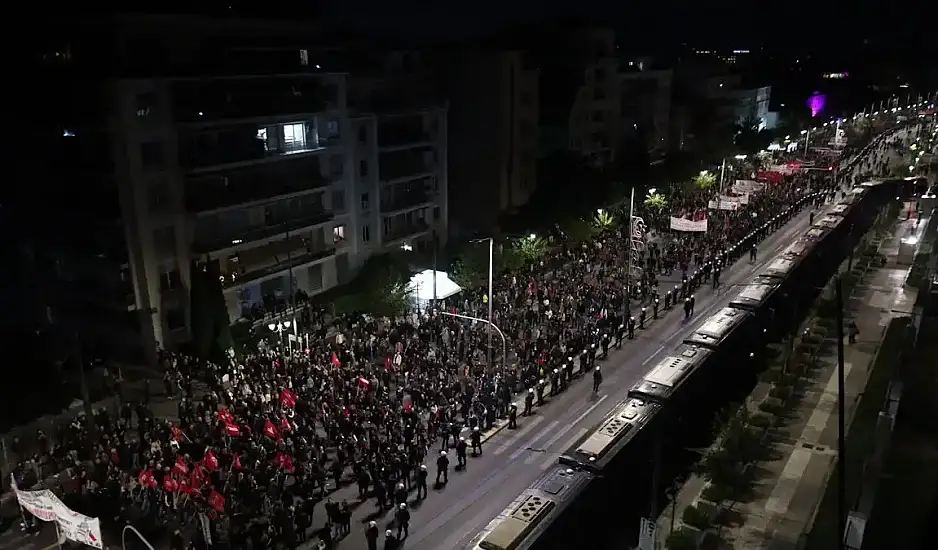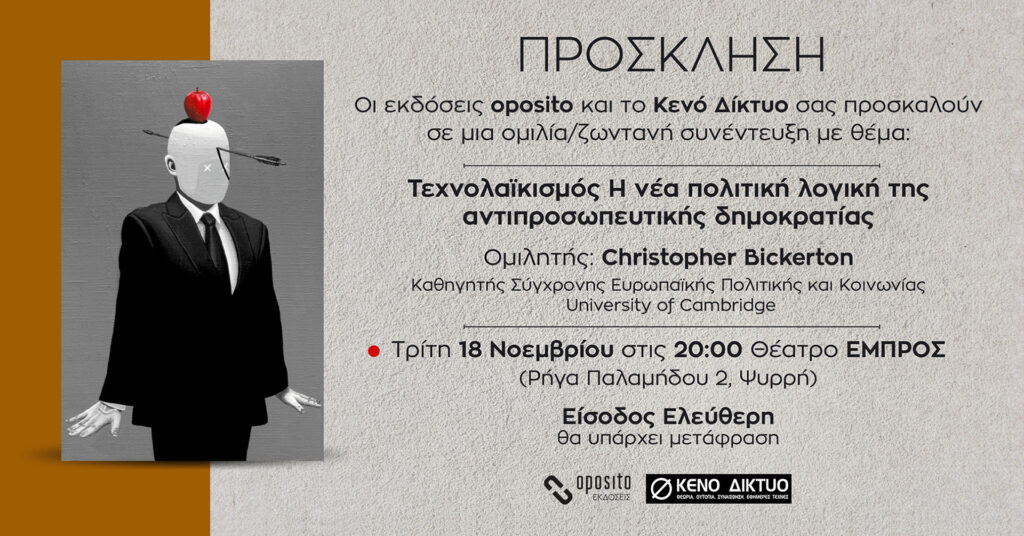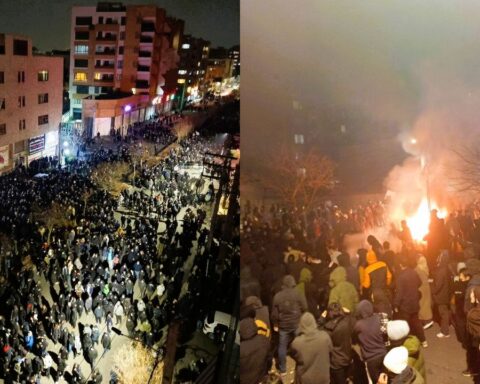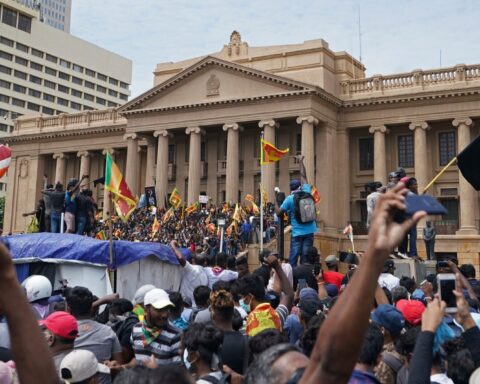Maoist assault on Athens anarchists exposed a hierarchical political culture shaped by patriarchal command habits
written by ~ Blade Runner ~
Thousands took the streets across Greece on 17 November, in memory of those killed during the Polytechnic uprising of 1973, when students were gunned down as they rose against the colonial dictatorship. In Athens, more than 6,000 riot police were deployed for the demonstration and rally outside the US Embassy, with armoured vehicles cordoning off the march’s route in an attempt to deter mass participation. Forty-three people were arrested in police operations prior to the demonstration.
Earlier, on the morning of 15 November, around 150 members of the Maoist group ARAS descended on the Polytechnic campus in Exarcheia during preparations for the annual commemorations of the 1973 revolt. They surrounded a small group of anarchist and anti-authoritarian students, launched a coordinated and sustained assault, and left more than a dozen hospitalised with concussions, broken bones, and severe head injuries—including people beaten while unconscious. The attackers operated behind a tight cordon, the campus gates were locked, and hundreds of other left organisations present were unable to intervene. The event was publicly condemned by the majority of the leftist and anarchist organisations in Greece.
Far from being just another intra-left skirmish, the attack was a strategic attempt to stake out territory. Whoever holds the physical space of the Polytechnic does not just manage a campus; they lay claim to the meaning of its history, and with it to the future horizon of social struggle. ARAS has spent years imposing its dominance inside sections of the university student movement, reproducing an authoritarian posture analogous to the Greek Communist Party’s (KKE) hegemonic stance in the wider social-political field: the insistence on organisational control, the policing of dissent, and the decades-old line—embraced by both KKE and liberals—that rioters are ‘unity wreckers’ or undercover police agents.
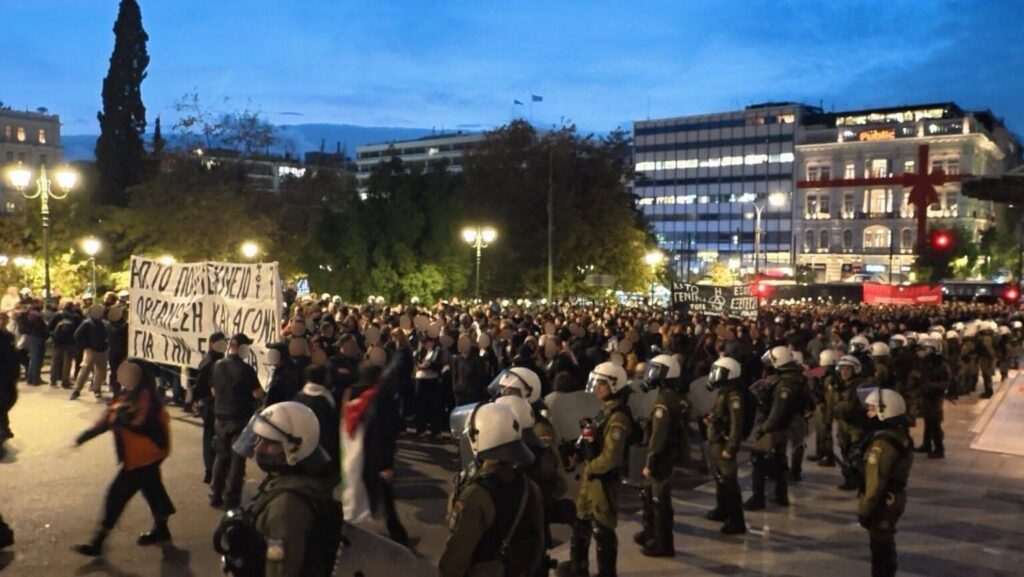
The assault belongs to a longer cycle of disillusionment, repression, and political decay. A generation came of age after the 2008 youth revolt—a moment that terrified the political class—only to watch the long disillusionment of the SYRIZA years unfold: hope evaporating, movement energy betrayed, and ‘left government’ shrinking into technocratic management. What followed was the right’s triumphant return, armed with a violently enforced TINA (‘there is no alternative’) and a counter-insurgency posture aimed squarely at the movements that shook the country in 2008 and during the memorandum years. In recent years, police authorities have increasingly attacked political squats—including inside university campuses with the cooperation of academic administrations.
In this climate, authoritarian and patriarchal patterns have reasserted themselves not only from above but also inside the political field, with remnants of the left acting as buffers and internal counter-insurgency, absorbing anger and blocking the emergence of genuinely autonomous social alternatives. ARAS’s attack was a re-enactment of this broader tendency: the internalisation of state logic by a leftist formation desperate for recognition and power. The attempt to secure relevance and organisational survival in a landscape reshaped by the slow asphyxiation of the movements culminated in a grotesque rupture with the spirit of the Polytechnic—an authoritarian spectacle that mimicked the very forces the anniversary is meant to defy. Movements have a lot to fear when actors legitimise these formations in the name of ‘unity’ and thereby help them secure moral cover.
Moreover, the attack’s brutality revealed more than a sectarian and authoritarian ambush; it exposed a hierarchical political culture shaped by patriarchal command habits—festering across parts of the Greek left (and the political spectrum more broadly)—and now emboldened under a government that fetishises discipline, punishment, and obedience.
For decades, the Polytechnic has been held open by those who reject these narratives of order and inevitability. Very few of the political currents present have ever been ‘non-violent’ in the moralistic sense pushed by governments and liberals. They have defended occupations, confronted police, blocked mines, and built care infrastructures under fire. Their militancy is collective and grounded in mutual protection. ARAS’s violence was the opposite: authoritarian domination masquerading as discipline, a patriarchally inflected theatre of control posing as social struggle.
This distinction is essential. Political formations that reproduce hierarchical and patriarchal command structures do not simply echo the state’s violence—they legitimise it. When a male-led sect storms the Polytechnic like a private riot squad, it functions as an unofficial extension of the repression the government has been escalating for years by suffocating movement spaces and expanding police powers under the banner of inevitability. In this context, ARAS’s attack reads less like sectarian madness and more like a grotesque amateur version of the state’s own narrative: ‘order must be restored; alternatives must be crushed.’ A violent echo of the TINA they claim to oppose.
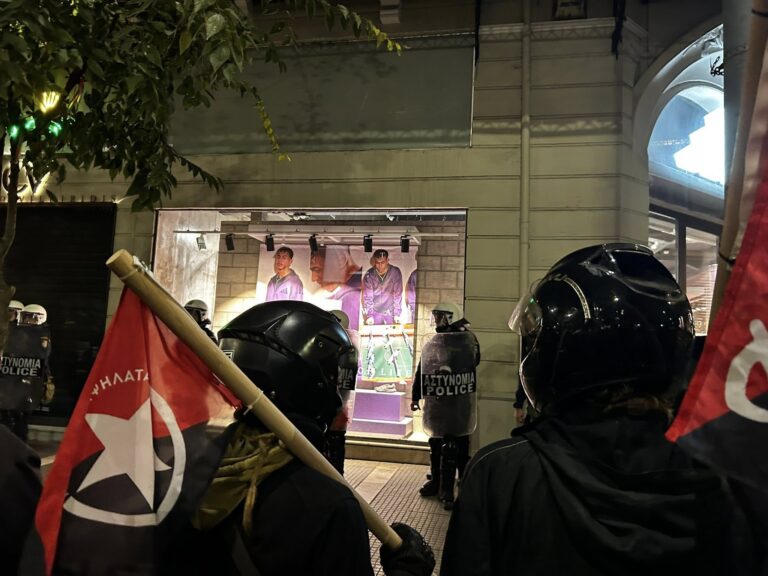
If movements want to survive this authoritarian phase—the criminalisation of dissent, the ‘good protester/bad protester’ theatre, the policing of youth politics—they must confront what enabled this attack. Not through vendetta or purges, which only recycle the same authoritarian circuitry, but by refusing to tolerate inside our own spaces the hierarchies, masculinities, and command habits that make such violence possible. Transformative justice is not a soft alternative to militancy; it is the only way militancy stays rooted in liberation rather than sliding into the logic of domination.
The Polytechnic revolt remains powerful because it rejected hierarchy, patriarchal command, and the logic of inevitability. It was messy, plural, and contradictory—and therefore genuinely insurgent. What happened this year was a desecration of that memory by people faithfully reproducing the logic of the state more than its police. Our task now is not only to defend our spaces from external repression, but to defend our political cultures from internal rot. No movement that fails to uproot authoritarianism—whether carried by the state or by its imitators—can build the world it says it is fighting for.
__
Source: Freedom News
